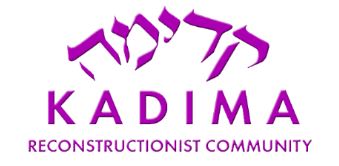Ha Lachma Anya
As we move into the maggid section, the telling of the story, we recite the words on the top of page 7. These words are in Aramaic because this was the common language at the time. It was more important to the curators of the seder as we know it that all were able to participate, all were able to eat, more important than using any particularistic language. This spirit was embodied just over 48 hours ago at the Erez Crossing between northern Gaza and Israel. Several of my colleagues in Rabbis4Ceasefire, American and Israeli rabbis, authors, and journalists were arrested trying to bring food into Gaza in the spirit of this reading. Israeli police physically prevented Jewish leaders from bringing food to hungry people, in the midst of this season's acknowledgement of Israelite oppression and enslavement. The dissonance is real.
When we say ha lachma anya, let us mean it. Let not the irony and cruelty of this act during Passover make our resolve waiver or sink. Let not the twisting up of the collective Jewish soul in these times squeeze us too tight. No, let us breathe in the expansiveness of what is still possible. As we say these words at the transition into the 7th night of Passover, let us remember that the sea had still not yet split. That the Israelites were indeed, like the people of Gaza, at this very moment of the Passover story, trapped between an army and a sea.
Imagine, perhaps, Egyptians who understood the injustice Pharaoh had committed against the Israelites for all those years attempting to break the ranks of the charging army, to bring the Israelites food and support, and work to find them a way out of the impossible seeming situation. And while there are many classical midrashim/stories about the sea splitting because of the faith and trust they had that G-d would save them, let us tonight wonder if instead it was the actions of Egyptians who broke the patterns of war and oppression, that caused the miracle to occur…or perhaps it itself was the miracle. For the sea to split. For a way to be made when none seemed possible. As we say the words that invite all who are hungry to come and eat, let us imagine ourselves as those who deliver food to all those being starved. And when we say “the land of Israel” as it is translated here from the original, let us render a deeper meaning, for a further translation of this is “the land of those who wrestle with power, persist, and triumph.” This is the true meaning of Israel. Let it not be appropriated in the name of cruelty. Thus in lands throughout the world where power is challenged, it is, in this way, a land of Israel.

 RSS Feed
RSS Feed